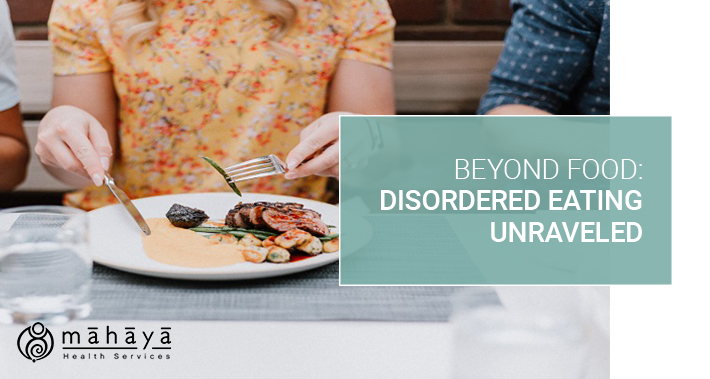
Dr. Alexandra Sisam, ND
Disordered eating is one of the most complex and challenging problems to both experience and provide treatment for.
It can be invisible, hidden by a “healthy” looking exterior, or it can present in an emaciated body.
It may be written off as a fad diet, or a “lifestyle change”, but that doesn’t change the impact it has on your day-to-day life.
What Is Disordered Eating?
You may be more familiar with eating disorders like anorexia and bulimia nervosa, but there are many more kinds of disordered eating.
Some involve a preoccupation with healthy eating that begins to interfere with life.
Some involve a relatively normal relationship with food, but a fraught relationship with exercise.
Others involve certain routines or practices, or rules about eating.
Sometimes, disordered eating is about eliminating food groups, or fasting, or cheat days.
Any of it can be a problem.
Disordered Eating And Your Emotions
Whether you meet the diagnostic criteria for an eating disorder or not, if you feel out-of-control around food, or feel like your life has been limited by your diet or your eating habits, you may want to take a look at your relationship with food.
Food is something that is so tied with emotion and human experience that it can become a coping strategy without us realizing it.
So many of our holidays are food-centric, whether they involve fasting, or massive dinners that leave everyone uncomfortably full.
We can go out for dinner to celebrate a win, skip a meal to feel like we can tackle the rest of our day, or drown our sorrows in a pint of ice cream.
As a result, whether we’re emotionally eating, or emotionally NOT eating, our ways of interacting with food are often based on how we feel, sometimes to the exclusion of our needs.
When Is It Time To Get Help?
You may be thinking that your weight isn’t “bad enough” to justify getting help with your disordered eating.
In my practice, I understand that illness and recovery aren’t defined by the number on a scale.
It involves overcoming certain thought patterns and core beliefs that are so ingrained that they feel true.
Fixing your relationship with food involves going beyond food and learning about who you are beneath this disorder.
Naturopathic medicine is one of the many tools that can support you as you recover from disordered eating; it includes mind-body counselling, acupuncture, Traditional Chinese Medicine, homeopathy, and nutrition.
Remember that you are not alone in this.
No matter what stage of recovery you’re in, don’t be afraid to reach out for support, or come in for a free 15 minute consult.
You can learn more about my practice, or book your first appointment here.